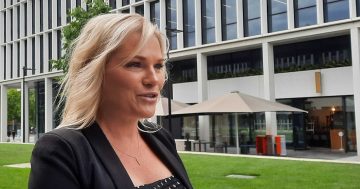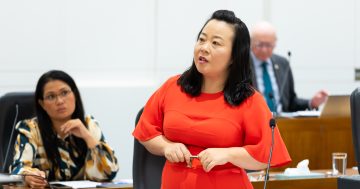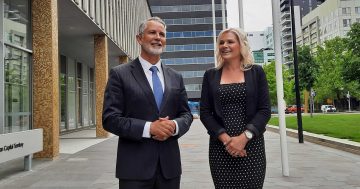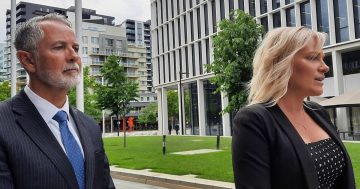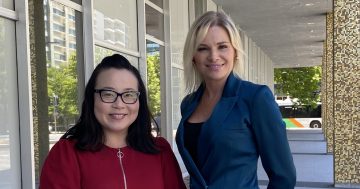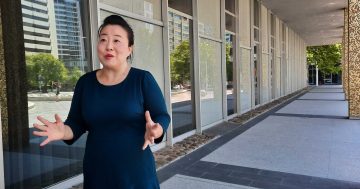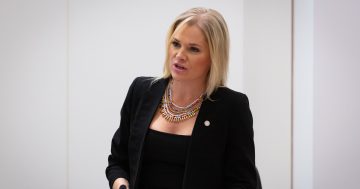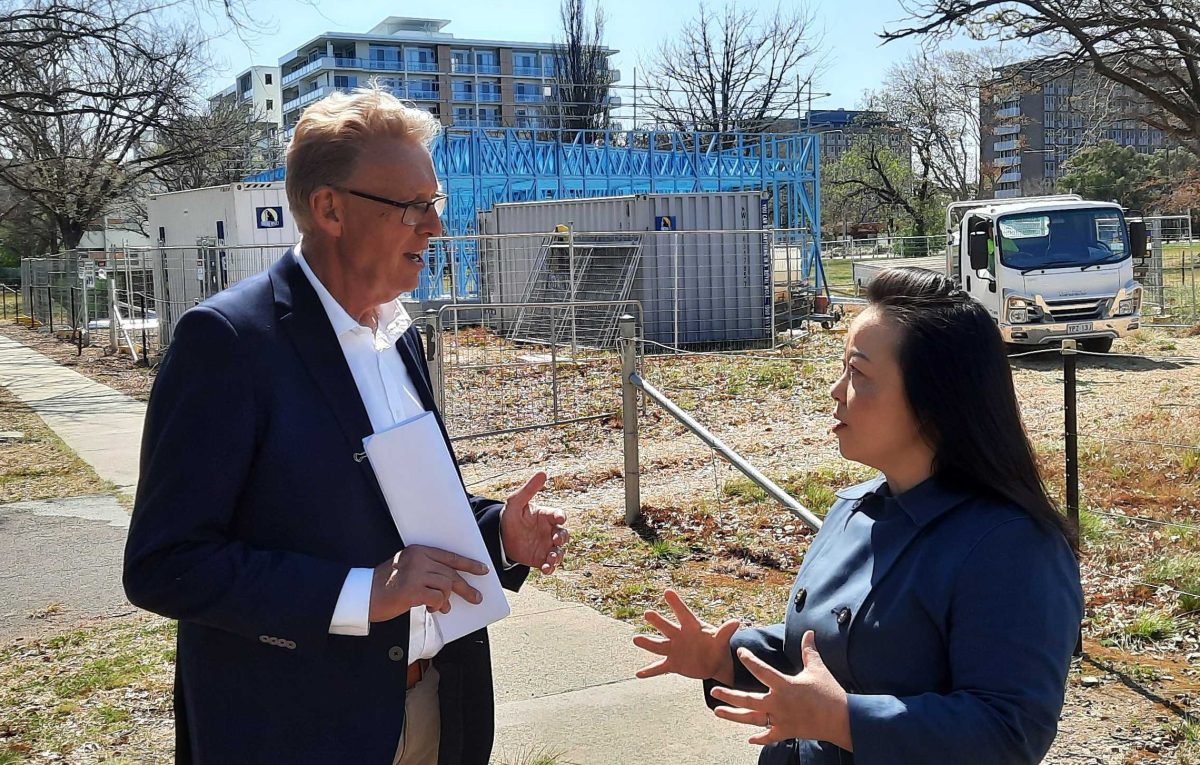
On the outer: Mark Parton and Elizabeth Lee are notably absent from the shadow cabinet. Photo: Ian Bushnell.
It doesn’t say much for the Canberra Liberals that a former leader and arguably its best communicator don’t want to serve in Leanne Castley’s shadow cabinet.
Elizabeth Lee’s pre-election brain snap didn’t help, but the election loss was not all on her.
Similarly, Mark Parton shouldn’t be reduced to putting his skills to use presiding over question time instead of being in the thick of the cut and thrust.
On the morning of the snap bus strike, it was Mr Parton who turned up on ABC radio cutting through, not Ms Castley, who also happens to be the new transport spokesperson.
In such a small party room, the Opposition simply can’t afford to lose two of its most experienced people because of ongoing factional or personality differences.
At least Ms Castley says the door remains open to Ms Lee, but the feeling is the former leader may be looking elsewhere.
Mr Parton has cross-party appeal, is an accomplished media performer and is popular. With a bit more application, he would be an effective leader, but either he doesn’t want it or, for some reason, can’t muster the support needed.
But he should still be in the shadow cabinet.
Without these two, Ms Castley had to turn to new members Deborah Morris and Chiaka Barry to take on multiple portfolios, and relative newcomer Ed Cocks to carry the important Treasury portfolio.
She insists that they have the life experience to see them through, but she struggled to detail that, and they will face a steep learning curve.
Perhaps too steep to worry Labor this term.

Liberal leader Leanne Castley with her deputy Jeremy Hanson. She will need his experience. Photo: Ian Bushnell.
While Ms Castley has grown through her first term and has good interpersonal skills, much of the Opposition burden will fall to the experienced right-wing warrior Jeremy Hanson, who should have remained on the front bench under Ms Lee.
He curiously will only have Education, where he can claim some credit for the current reforms, and Veterans on his plate.
Will he be pragmatic Jeremy or revert to prosecuting causes about which that the electorate has made clear its position?
This is a conservative shadow cabinet and the perception problem still haunts the Liberals in progressive Canberra, especially with two moderates now on the outer.
Ms Castley’s eschewing of ideological positions to focus on basic services is a good start. Interestingly, Labor’s takeout from the election is similar.
But big policy positions such as light rail await. On that issue, the Liberals need to move on because there have been enough elections fought about it.
The promised “warts and all” review of the campaign will set the tone for term, but there are some in the party already writing off 2028 and looking wistfully to 2032.
A lot can happen quickly in politics, incumbency is becoming increasingly fragile and governments can easily stuff things up, but budging Labor could be an even tougher job in 2028 than 2024.
The inexperienced Opposition will take time to have any real impact while a chastened Labor seems determined to deliver and marshal the bureaucracy.
By 2028, several major capital works will be complete or near completion – the Northside Hospital, the Lyric Theatre, and Light Rail Stage 2A.
Approvals should be in place for Light Rail Stage 2B – even a Coalition government should see the need for it to service growing Barton – and a contract in sight.
There should also be starts on the new Bruce stadium and the convention centre and entertainment pavilion in the city, as well as a new aquatic centre in Commonwealth Park and a new public park at the Acton Waterfront.
As well as these big set pieces, expect to see smaller community projects across the ACT, but particularly in the south where the swing against Labor was most pronounced.
The electrification of the bus fleet will be well on the way.
The Strong Foundation reforms in ACT schools should also be making an impact on student performance.
There should be a surge in housing supply thanks to accelerated land releases and federal money.
That may sound like a Labor manifesto but with so much going on, it will be challenging for the Liberals to make a case for change.
Of course, there is also the capacity for project delay and failure, budget blowouts, faltering school reforms and housing mirages.
The question is, will this depleted, or at least underdone Opposition be up to seizing the opportunities that arise?












